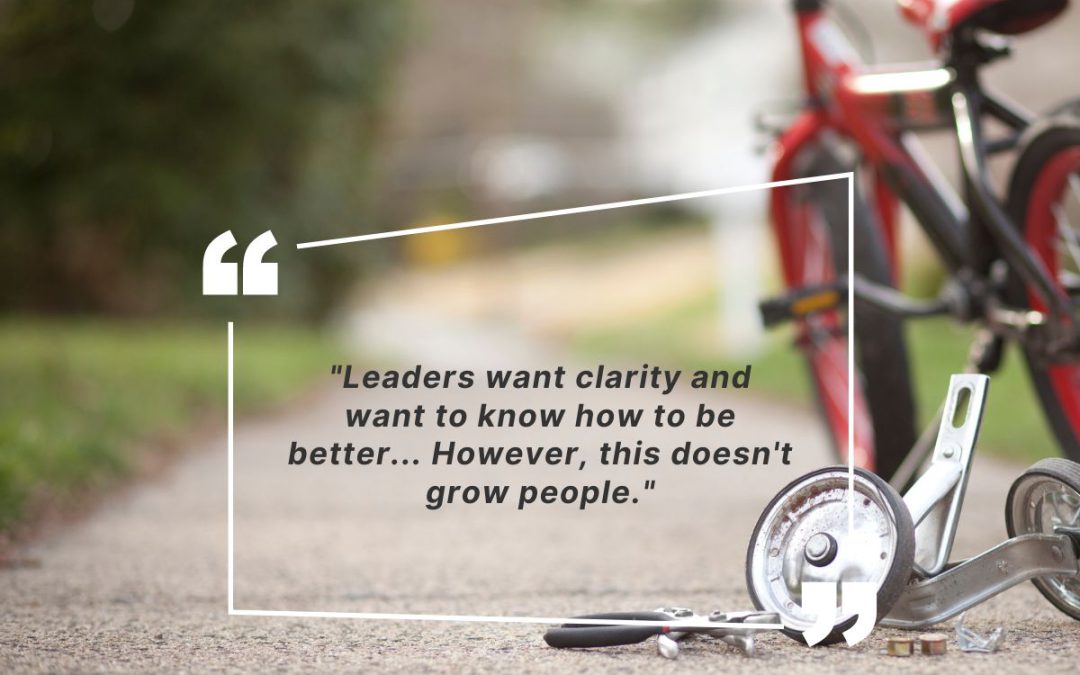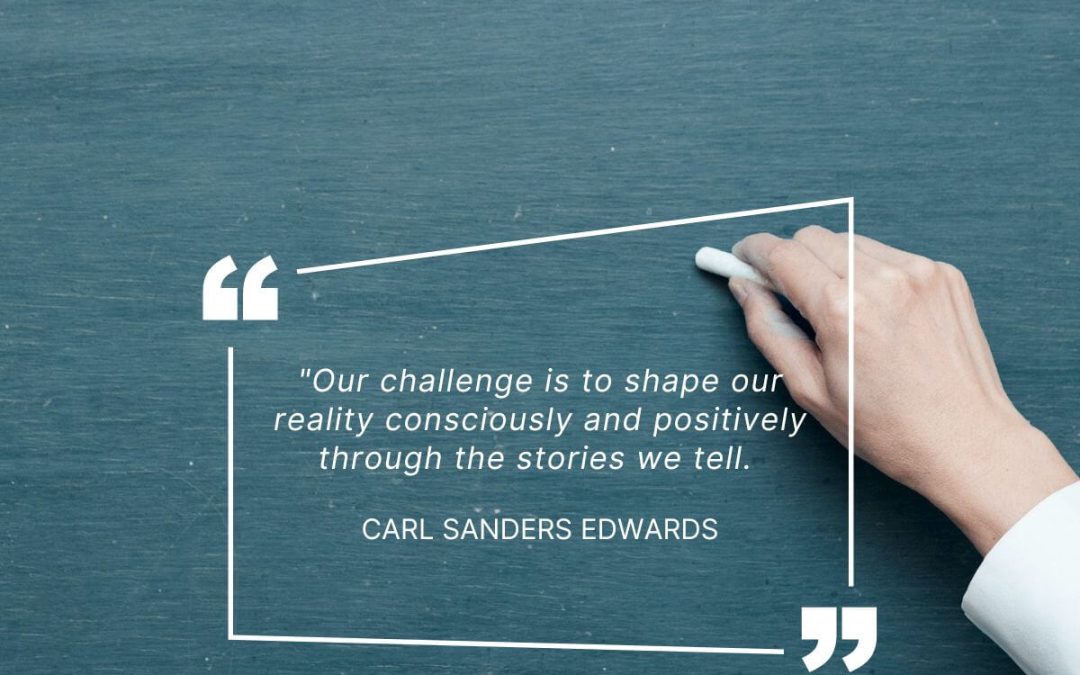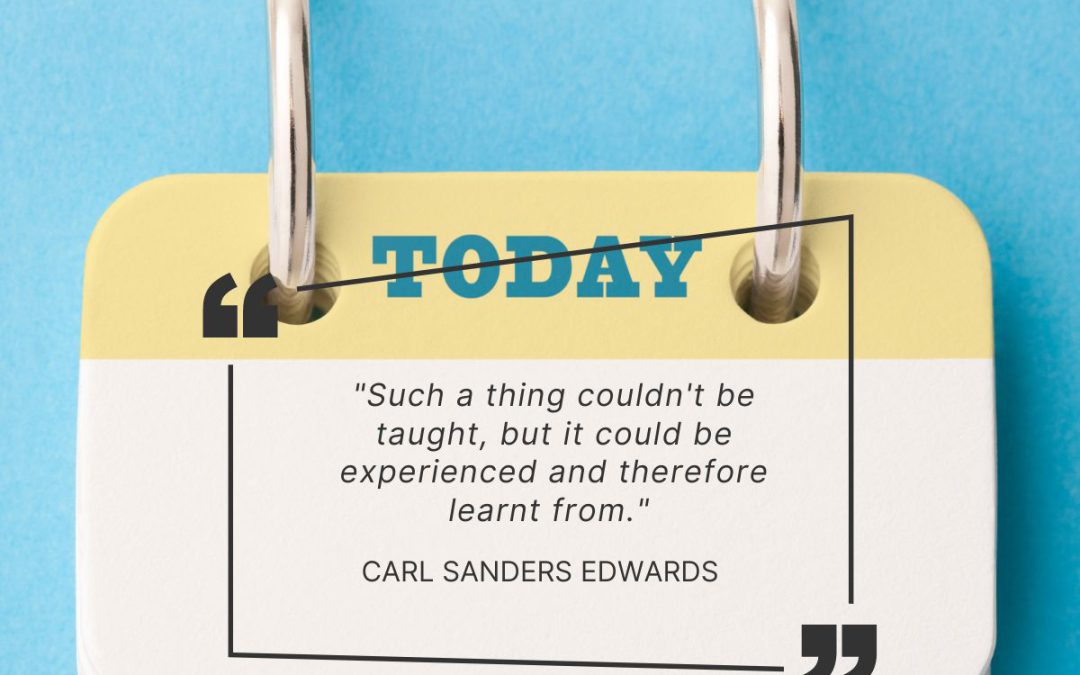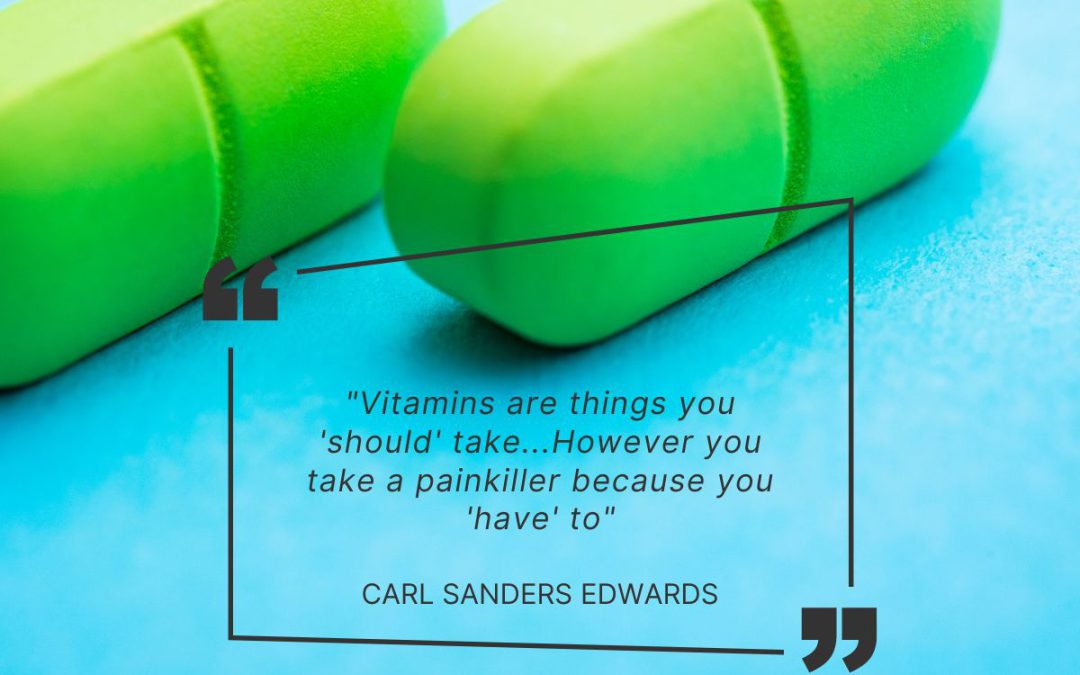
by JumpShift Development | Mar 12, 2023 | Leadership Insights
 Carl Sanders Edwards
Carl Sanders Edwards
I’ve been reflecting on my child learning to ride a bike. In true Dad fashion, I walked with them nudging and holding them up. Even with good natural balance, it wasn’t pretty. So, I helped more; I nudged, I held, I made it worse. After a quick break and a regroup (read into this what you will) we tried again, but this time I just got them started and then stood back. Two crashes later and they’re away! I’d just learnt something very important. True development is self-directed, all we can provide is a little scaffolding.
Let me go deeper in terms of vertical development. As adults develop vertically, we move through some big shifts. First, we start with a dependent (or socialized) mindset. We take our cues, sense of worth and identity from others – we are dependent. Then we grow to be independent (or self-authoring). Here we have a sense of our own identity and can assess things against an internal compass and values. Beyond this, we then grow to integrate the two and become interdependent – part of something bigger. The big shift most of us (need to) make is from dependent to independent. It’s not easy, humans are social animals and care deeply about how others perceive us, it’s a good thing but the need to fit in can hold our growth back. Add social media and the impact is magnified 100-fold, effectively anchoring us in a dependent state as we seek affirmation and follow the ‘perfection’ of others.
Now the crux of all of this for us as Leadership Development professionals is an interesting paradox. Leaders want clarity and want to know how to be better. They want the bike to be held and nudged. However, this doesn’t grow people. Giving in to these requests and telling a leader how to ‘be better’ just anchors the people we are serving in a dependent state, robbing them of the chance to truly grow. Tricky right? It’s a balance we are always seeking, but we do see the results of making vertical development core to our programme design. With the right support of reflective questions, self-awareness, gentle inspiration, and safe places to have some crashes most people get started and love the process of true self-directed development.
If this article resonated, check out these free Adeption tools to inspire your thinking into action!
Zone of Proximal Development
Psychological Safety
More leadership insights

by JumpShift Development | Mar 1, 2023 | Leadership Insights
 Carl Sanders Edwards
Carl Sanders Edwards
My Dad was a primary school teacher. Unlike most teachers in those days, he was popular with the kids. I remember as a 6-year-old that everyone in our town seemed to know Dad and want to stop and chat and engage. So I asked him why. “Oh, they were a student”, was always the reply. I learnt that Dad was a kind, likeable teacher who taught well. This has embedded itself as a story for me.
“Be kind, likeable and do your job well to have a good impact (and feel good)”.
We all have our ‘stories’. The stories are scripts that run so much of our lives, some for better, some for worse. They drive most of our behaviour. Some are from childhood, some from recent times. They are powerful. They are also malleable. They aren’t invisible forces resistant to change. You can reflect to discover them and then if you wish, edit them.
Huh? Here is a simple example.
I flunked the presentation.
My story could be “I’m not good enough, that’s why I flunked it”. What happens when I next prepare a presentation?
Take that story and edit it, “I flunked it because I didn’t prepare well enough“. Now, what happens when I prepare for the next presentation?
It can be like magic.
The developmental reflect-act-reflect cycles triggered through methodologies such as D-I-Y and Be conscious, Be curious, Be better are also a form of story editing.
Why is this idea important right now? Stories are formed during times of intense emotion and change. Do we have that at the moment! Whether referring to the pandemic, weather, wars, political or economic unrest, the word ‘unprecedented’ leads headlines constantly. Our challenge is to shape our reality consciously and positively through the stories we tell.
If this concept resonates, think of a situation that didn’t go as well as you’d hoped. If your story of that situation doesn’t aid your understanding of realistically why it didn’t go well, you might need to get editing!
Enjoy this free to access Adeption tool to get you started! What story are you telling yourself?
More leadership insights

by JumpShift Development | Jan 11, 2023 | Leadership Insights

Carl Sanders Edwards
I took a deep breath. I gulped the bitter green tea, squeezing the caffeine placebo as much as I could. “Two more”, I said to myself hoping for a mantra like boost. I was exhausted but still needed to do more.
I wasn’t finishing an adventure race; I wasn’t surviving in the wild. I wasn’t navigating a night with a new-born. Nope, it was just my MBA. It was a Wednesday night, and I was preparing for Thursday’s classes. Hmmm, that sounds a little dramatic Carl! Probably, but that was my experience at the time!
We were a couple of months into the program and I was sinking. Completely overwhelmed and paddling hard to keep my nose above the water. I wasn’t even the duck moving calmly on the surface while its feet paddle furiously below, I was all arms and legs flailing and splashing wildly while slowly sinking.
That experience has proved to be one of the most developmental I can recall. Not one bit of this development had anything to do with the content we were learning. It turns out that our particular MBA school had a philosophy that went.
“If your company grows, or if you get promoted into more and more influential roles (managing people or not), then your ability to do everything you should do, or that you want to do, or even worse, that you know you should do, is insufficient. Your constraint isn’t what you know, or what to do, but simply how to decide what to do out of a bunch of very important things (meaning some won’t get done). You will have to come to terms with your to-do list never being done, or even close to it.”
In the space of a few months, I was forced to have a new relationship with my to-do list. It would never get done, ever. Eventually, I learned that the MBA school was very deliberate about this. They never expected us to do everything asked and required – that was impossible. They wanted us to learn this point in a safe environment, one where, honestly, it didn’t really matter that much. Such a thing couldn’t be taught, but it could be experienced and therefore learnt from.
My to-do list transformed into an invitation to decide what I will do next. A quality to-do list with lots of things on it stopped being a tool that created overwhelm and started being a tool to help me make better decisions. It’s still very important, but it’s not a list I’m trying to finish, it is a pipeline of activities that help me focus and stay motivated. Now, when I start feeling overwhelmed by my to-do list, I try to reflect on how it would be worse if there was nothing to do. Shock horror, that might mean I’ve made myself surplus to requirements!
Ready to put the insight into action? Check out these free to access Adeption tools to get you started doing more, faster and smarter.
Do like things together
Manage your energy not your time
More leadership insights

by JumpShift Development | Aug 23, 2022 | Leadership Insights
 Carl Sanders-Edwards
Carl Sanders-Edwards
“I got it”, said Ross. “Got what?”, I replied. “You are selling vitamins not painkillers line” “Say what?”, I responded.
Ross is a good friend who did an MBA at the Berkeley Haas School of Business. Being right beside Silicon Valley, Berkeley takes entrepreneurship and business building seriously and it’s part of the legend that you don’t want to build a business that sells vitamins, but instead sells painkillers. Here is what he taught me.
Vitamins are things you ‘should‘ take. Their benefit is in the future and is somewhat opaque. Who knows if your good health is due to vitamins or any one of a number of other things?
However you take a painkiller because you ‘have’ to. Something hurts and you want it to go away. When you take a painkiller, it’s clear that the painkiller made it go away, nothing opaque about that!
With businesses there are lots of things that we should do, services we should buy. However it is far easier to sell the things that people and companies have to buy. Therefore we get the Berkeley legend of it’s better to sell painkillers not vitamins.
So, we are in the business of leadership development and it is probably more in the vitamin camp. At Adeption and JumpShift we have a very good, evidence-based vitamin, but still a vitamin. A should.
However things are changing. The world is getting more complex and more volatile. Automation and AI are taking away the easy jobs that don’t require lots of leadership (from everyone). Finally add in a pandemic, and other massive instabilities – maybe leadership development is becoming a must. As another friend once said to me, “Carl, Leadership development is still a vitamin, it’s just the world has got scurvy and that changes everything”.
Hint – if you don’t get the wisdom of his comment check this out
This is where you all come in. Let’s make leadership development a must. A healthy must.

 Carl Sanders Edwards
Carl Sanders Edwards
 Carl Sanders Edwards
Carl Sanders Edwards


 Carl Sanders-Edwards
Carl Sanders-Edwards
Recent Comments